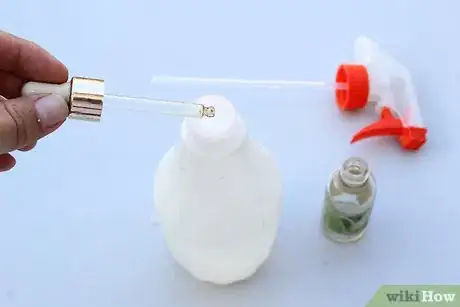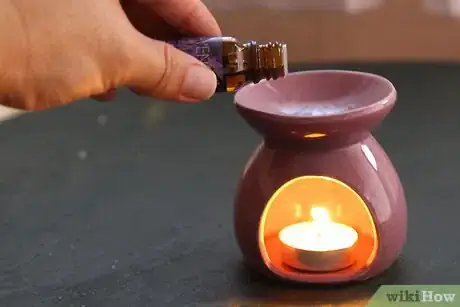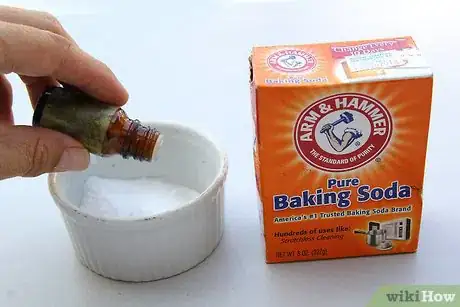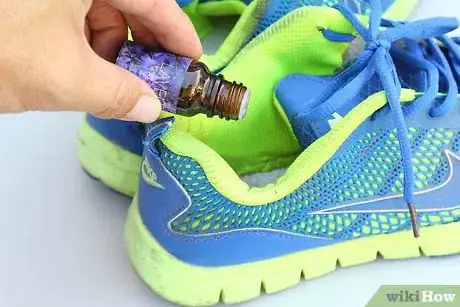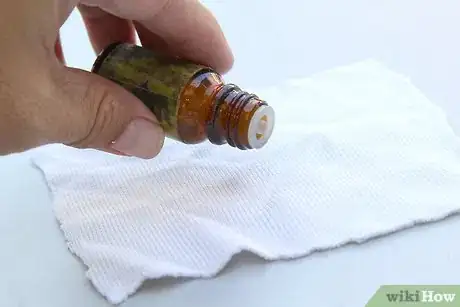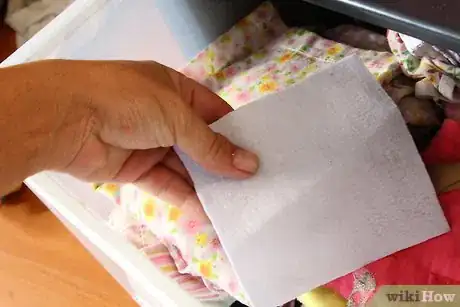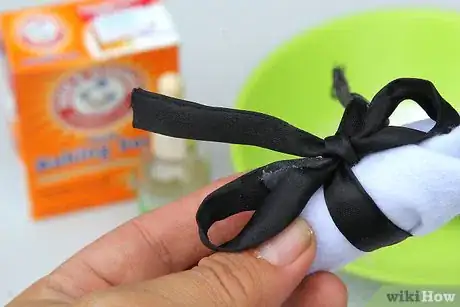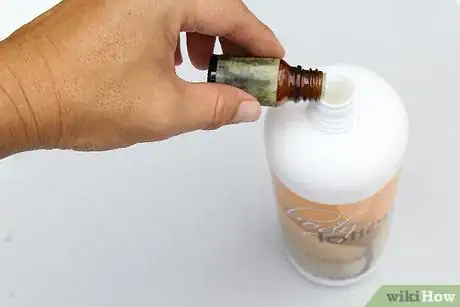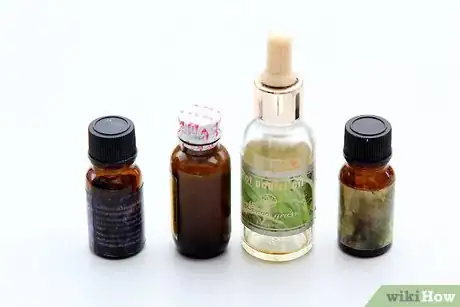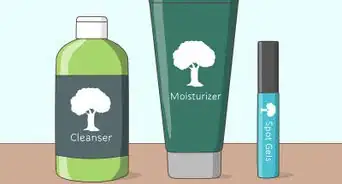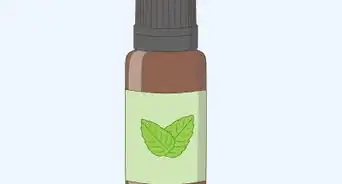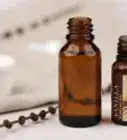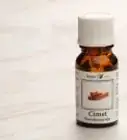This article was co-authored by Julie Brow-Polanco. Julie Brow-Polanco is a Master Herbalist & Certified Aromatherapist with more than 11 years of experience. She is an expert on natural remedies and specializes in using them to support whole-body wellness, particularly immune, digestive, nervous, and reproductive health. Julie earned a Bachelor's Degree in Psychology from Dominican University, a Master Herbalist Certification from The School of Natural Healing, and a Certificate of Aromatherapy from the Pacific Institute of Aromatherapy. Julie is a member of the American Herbalist Guild and a Certified Aromatherapist through the National Association of Holistic Aromatherapy.
There are 7 references cited in this article, which can be found at the bottom of the page.
wikiHow marks an article as reader-approved once it receives enough positive feedback. This article received 18 testimonials and 92% of readers who voted found it helpful, earning it our reader-approved status.
This article has been viewed 435,907 times.
Fragrance oils are manufactured oils developed for their pleasant scents. Fragrance oils are not to be confused with essential oils. Fragrance oils, also called burning oils or perfume oils, can be used in crafting, home scenting, perfumes and anytime you want to create a pleasant smelling environment.
Steps
Using Fragrance Oils in the Home
-
1Create your own air freshener. Add a few drops of fragrance oils to a plastic spray bottle, then fill with water. Shake the bottle well to mix the oil into the water. You can then spray 2-3 times into the air to spread the scent into any room.[1]
- Be careful not to spray into the eyes of any people or pets.
- The spray should come out in a fine mist, not a sharp stream. The water is simply a carrier for the oil.
-
2Use fragrance oils in an oil burner. An oil burner is an ancient method of scenting a room. To use an oil burner, find an oil you like. Place 3-5 drops of the oil together with some water into the top of an oil burner until it's 1/2-3/4 of the way full. Place the burner in a safe location, away from children, pets or burning hazards. Light the candle at the base of the burner. The oil/water mixture will start to heat and evaporate, scenting the room.[2]
- A lavender-scented oil may be good for relaxation. Lemon is be both cheering and soothing.
- Be careful not to put too much oil into the burner mix, or it can cause throat and sinus irritation.
Advertisement -
3Add fragrance oils to baking soda for carpet cleaner. Take a new container (1 lb) of baking soda and add a few drops of your favorite fragrance oil. Mix the oil in well, and allow to soak for 24 hours. You can now shake this mixture onto your carpet for a carpet cleaner. Shake lightly across the full area of the carpet you intend to clean. Allow the mixture to sit in the carpet fibers for 30-60 minutes, then vacuum.[3]
- You can substitute corn starch for baking soda.
- Apply to a small area of carpet if you're not sure how your carpet will react to the mixture. Most carpets will be fine.
-
4Cover foot odor by adding oil to shoes. Adding a drop of fragrance oil to the insole of your shoes will help cover unpleasant shoe odor.[4]
- If the shoe odor is caused by foot fungus or infection, adding fragrance oil will not address the source of the foot odor. However, it may help cover the bad smell while your foot heals.
- You can also wipe the interior of your shoe with a paper towel that has been moistened with fragrance oils.
- Be aware that some shoe materials may be damaged by oils. Use oils sparingly on shoes, and test with a small amount of oil at first.
-
5Add a drop of fragrance oil to a light bulb. Apply by soaking a cotton ball in your choice of fragrance oils. When you turn the light bulb on, the oil will heat. As it heats, it will start to evaporate and scent your room.
- Be careful not to add too much oil to a cold light bulb, or the scent may be too strong.
- Experiment with different oils to find the one you prefer. Different occasions may call for different oils.
- Avoid getting oil on the base that screws into the light socket. Also avoid putting oil on incandescent or halogen light bulbs because they can get very hot and burn. Your light bulb may have a shorter lifespan as a result. If you have a radiator, that may be a more suitable place for the oil.
-
6Apply fragrance oil to stationery. Creating a love note with a special scent is a memorable romantic gesture. Place a few drops of fragrance oil onto a paper towel. Fold the paper towel, and place into a plastic bag. Put the stationery into the bag, and seal.[5]
- The fragrance oil should permeate the stationery.
- If your stationery comes in a box, a small oiled square of paper placed in the box will scent the whole stationery set.
- Scent your envelopes in the same way.
-
7Make your own dryer sheet. Cut an old white tee-shirt into 5-inch squares. Each square is a natural fabric sheet. Add 3-5 drops of fragrance oil to the cotton square, and place it into the dryer with your clothes. Your clothes will be laced with the fragrance as they dry.[6]
- Each cotton sheet can be reused 2-3 times, adding 3 fresh drops of oil before each use.
- Wash the sheet, and reapply a new kind of oil if you like. This dryer sheet can be reused many times before it must be thrown away.
- The oil helps with static clean as well as providing a pleasant scent.
-
8Freshen your drawers with fragrance oils. Add a fabric sheet lightly scented with fragrant oil to a sour drawer or closet to scent your clothes or linens. You can also tuck a cotton ball moistened with your favorite fragrance oil into the corner of your drawer.[7]
- Because this scent will be quite strong, use the oil sparingly.
- You can use different scents in different drawers or closets. Perhaps a floral scent in the underwear drawer, and a fresh, "spring rain"-like scent in the linen closet. Experiment to find the scents you enjoy the most!
-
9Make scented sachet for your drawers. Cut a 6-7 inch square of color-fast cloth. In a small dish, add a drop of fragrance oil to 1/8 cup of baking soda. Mix well, and place the mixture onto a square of fabric. Pull the corners of the fabric together, and tie in place with a ribbon.
- The sachet can be tucked into any drawer or hung in a closet.
- This scented sachet can help with bad smelling drawers. It can also keep moths out of woolens.
-
10Add fragrance oil to unscented shampoo or lotion. Fragrance oil can lend its scent to any unscented body care cream, including shampoo or lotion. Add 7-10 drops of fragrance oil per ounce of unscented body care product.
- Using more fragrance oil creates a stronger scented product. Less oil results in a milder scent.
- Be careful to use oils that don't cause problems for your skin or hair type. Test on a small area before spreading liberally. If your skin or hair has negative reaction, discontinue use.
Understanding Fragrance Oils
-
1Be careful not to mistake fragrance oils for essential oils.[8] Fragrance oils can be created from a small amount of essential oils placed within a carrier oil. Fragrance oil can also be essential oils held in a synthetic carrier. Synthetic aromatic compounds placed within either a natural or a synthetic carrier are also known as fragrance oils.
- Essential oils are naturally occurring oils created by a process of distillation. Their uses are varied, but in general these oils are much stronger. Essential oils are rarely used in an undiluted state.
- The main purpose of fragrance oil is to add aroma to the environment.
- Fragrance oils are also called scented oils.
-
2Understand the benefits of using fragrance oils. Because they are often made synthetically, fragrance oils come in a broader range of scents, and are usually much less expensive than essential oils. Their scent will often be stronger, and last longer, than the scent of essential oils.
- Using fragrance oils can be more environmentally sustainable than using essential oils. For example, using sandalwood oil is a product of killing the entire tree.
- Whether you decide to use essential oils or fragrance oils depends on your purpose. Each oil has its merits.
- Some essential oils can cause negative reactions with skin contact. Fragrance oils may offer a way to access the scent of the essential oil by diluting the oil in a natural or synthetic carrier.[9]
-
3Use essential oils for aromatherapy. Fragrance oils smell lovely, but have no real therapeutic value. Essential oils contain the true essence of the flowers, herbs, roots, or resins. Unlike fragrance oils, essential oils have not been cut with any kind of carrier oil.[10]
- Fragrance oils can lift the spirits simply by smelling good.
- Because essential oils are distilled in small batches from local regions, their consistency varies. For crafters seeking to develop a consistent product, this can be a challenge. Some crafters choose to use fragrance oils when possible in order for more predictable consistency.
Warnings
- Remember that some people have sensory sensitivities and may be affected by fragrance oils.[11]⧼thumbs_response⧽
- Never take fragrance oils internally.⧼thumbs_response⧽
References
- ↑ http://pioneerthinking.com/home/fragrance-oils-10-amazing-uses-for-around-your-home
- ↑ http://www.modernmom.com/2d1c7b92-051f-11e2-9d62-404062497d7e.html
- ↑ http://pioneerthinking.com/home/fragrance-oils-10-amazing-uses-for-around-your-home
- ↑ http://pioneerthinking.com/home/fragrance-oils-10-amazing-uses-for-around-your-home
- ↑ http://www.healing-journeys-energy.com/aromatherapy-oil-uses.html
- ↑ http://www.diynatural.com/homemade-fabric-softener-dryer-sheets/
- ↑ http://www.aromatherapynaturals.com/pages/how-to-use-essential-oils
- ↑ Julie Brow-Polanco. Master Herbalist & Certified Aromatherapist. Expert Interview. 12 April 2022.
- ↑ http://www.herbco.com/t-essential-and-fragrance-oil.aspx
- ↑ http://www.herbco.com/t-essential-and-fragrance-oil.aspx
- ↑ Julie Brow-Polanco. Master Herbalist & Certified Aromatherapist. Expert Interview. 12 April 2022.
About This Article
To use fragrance oils, add a few drops to water in a spray bottle and spritz 2-3 times into the air. Alternatively, add a drop of oil to the top of a light bulb, which will scent the room as it heats up. You can also make dryer sheets by cutting a shirt into squares, adding 3-5 drops of oil to a square, and placing it in the dryer with your clothes. To make carpet cleaner, add a few drops of oil to baking soda and shake it on your carpets. After an hour, vacuum the carpet for a fresh look and scent. For tips on what fragrance oils to buy, keep reading!
